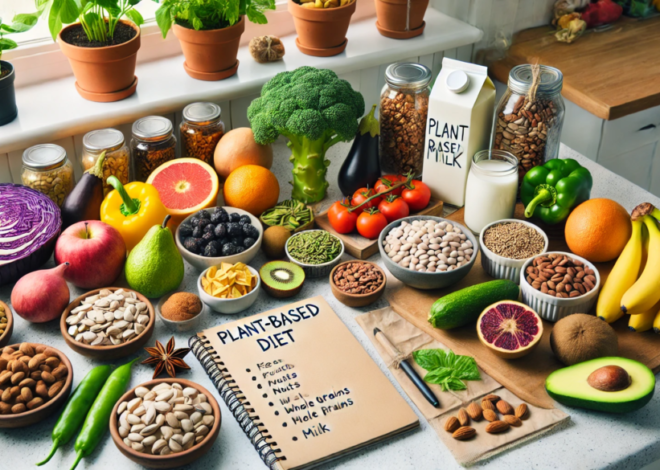
Weight Loss Tips: Effective Strategies for Healthy Weight Loss
Achieving and maintaining a healthy weight is a common goal for many people. While the journey can be challenging, adopting effective and sustainable strategies can make a significant difference. Healthy weight loss involves more than just cutting calories; it requires a balanced approach that includes proper nutrition, regular physical activity, and positive lifestyle changes. This article explores practical tips and strategies for achieving healthy weight loss, focusing on long-term success and overall well-being.
Understanding Healthy Weight Loss
Healthy weight loss means losing weight at a steady and sustainable rate. Aiming for 1-2 pounds per week is considered safe and achievable for most people. This gradual approach helps preserve lean muscle mass and reduces the risk of regaining lost weight.
The Importance of a Balanced Diet
A balanced diet provides essential nutrients while managing calorie intake. It includes a variety of foods from all food groups, ensuring that the body gets the vitamins, minerals, and other nutrients it needs.
The Role of Physical Activity
Regular physical activity helps burn calories, build muscle, and improve overall health. It also boosts metabolism and supports cardiovascular health, making it an integral part of any weight loss plan.
Effective Weight Loss Strategies
1. Set Realistic Goals
Setting realistic and achievable weight loss goals is crucial for staying motivated and focused. Start with small, manageable changes and gradually increase the intensity and duration of your efforts.
- Short-term goals: Focus on losing 1-2 pounds per week.
- Long-term goals: Aim for a healthy weight based on your age, height, and body composition.
2. Eat a Balanced Diet
A balanced diet is key to successful weight loss. Focus on nutrient-dense foods that provide essential nutrients without excess calories.
- Fruits and Vegetables: Rich in vitamins, minerals, and fiber, they help you feel full and satisfied.
- Whole Grains: Include whole grains like brown rice, quinoa, and whole wheat bread for sustained energy.
- Lean Proteins: Choose lean protein sources like chicken, turkey, tofu, beans, and fish to support muscle growth and repair.
- Healthy Fats: Incorporate healthy fats from sources like avocados, nuts, seeds, and olive oil.
3. Control Portion Sizes
Portion control is essential for managing calorie intake. Even healthy foods can contribute to weight gain if consumed in large quantities.
- Use smaller plates and bowls: This can help control portions and prevent overeating.
- Be mindful of serving sizes: Pay attention to food labels and serving size recommendations.
- Avoid second helpings: Wait a few minutes before deciding if you’re still hungry.
4. Stay Hydrated
Drinking plenty of water is important for overall health and can aid in weight loss.
- Water: Helps regulate appetite and metabolism.
- Avoid sugary drinks: Limit consumption of sodas, juices, and other high-calorie beverages.
5. Limit Added Sugars and Refined Carbs
Foods high in added sugars and refined carbs can lead to weight gain and other health issues.
- Avoid sugary snacks and desserts: Opt for fruit or yogurt as a healthier alternative.
- Choose whole grains: Whole grains are more nutritious and satisfying than refined grains.
6. Include Protein in Every Meal
Protein helps build and repair tissues, supports muscle growth, and can help you feel full for longer.
- Breakfast: Include eggs, Greek yogurt, or a protein smoothie.
- Lunch and Dinner: Opt for lean meats, fish, legumes, or tofu.
7. Incorporate Physical Activity
Regular exercise is a critical component of a successful weight loss plan. Aim for at least 150 minutes of moderate-intensity exercise per week, along with strength training exercises.
- Cardiovascular exercises: Walking, running, cycling, swimming, and dancing can help burn calories and improve heart health.
- Strength training: Lifting weights, using resistance bands, or bodyweight exercises can build muscle and boost metabolism.
- Flexibility and balance exercises: Yoga and stretching can enhance flexibility and reduce the risk of injury.
8. Practice Mindful Eating
Mindful eating involves paying attention to what and how you eat, promoting a healthier relationship with food.
- Eat slowly: Take time to savor each bite and chew thoroughly.
- Listen to your body’s hunger cues: Eat when you’re hungry and stop when you’re full.
- Avoid distractions: Turn off the TV and put away your phone during meals.
9. Get Adequate Sleep
Adequate sleep is essential for overall health and can impact weight loss.
- Aim for 7-9 hours of sleep per night: Quality sleep helps regulate hormones that control hunger and appetite.
- Establish a bedtime routine: Create a relaxing routine to wind down before bed.
10. Manage Stress
Chronic stress can lead to emotional eating and weight gain. Finding healthy ways to manage stress is crucial.
- Practice relaxation techniques: Deep breathing, meditation, and yoga can help reduce stress.
- Engage in hobbies: Activities you enjoy can provide a healthy outlet for stress.
Tips for Staying Motivated
Track Your Progress
Keep a journal of your food intake, exercise, and weight loss progress. Tracking your efforts can help you stay accountable and motivated.
Celebrate Small Wins
Celebrate your achievements, no matter how small. Recognizing your progress can boost your confidence and motivation.
Seek Support
Having a support system can make a significant difference in your weight loss journey. Share your goals with friends and family, or join a weight loss group for encouragement.
Stay Positive
Weight loss can be challenging, and setbacks are normal. Stay positive and focus on your long-term goals. Remember that a healthy lifestyle is a journey, not a destination.
Conclusion
Achieving healthy weight loss involves a combination of balanced nutrition, regular physical activity, and positive lifestyle changes. By setting realistic goals, eating a nutrient-dense diet, staying active, and practicing mindful eating, you can successfully reach and maintain a healthy weight. Remember, the key to lasting weight loss is consistency and sustainability. Make gradual changes that you can maintain long-term, and focus on overall well-being rather than just the number on the scale.
FAQs
What is the best diet for weight loss?
There is no one-size-fits-all diet for weight loss. The best diet is one that is balanced, nutrient-dense, and sustainable. Focus on whole foods, control portion sizes, and avoid processed foods.
How much exercise do I need for weight loss?
Aim for at least 150 minutes of moderate-intensity exercise per week, along with strength training exercises. The amount of exercise needed varies depending on individual goals and fitness levels.
Can I lose weight without exercising?
While it’s possible to lose weight through dietary changes alone, combining diet and exercise is more effective for achieving and maintaining weight loss. Exercise also offers numerous health benefits beyond weight loss.
How can I overcome a weight loss plateau?
To overcome a weight loss plateau, try adjusting your diet, increasing physical activity, and ensuring you’re getting enough sleep. Sometimes, small changes can help break through a plateau.
Is it safe to lose weight quickly?
Rapid weight loss is not recommended as it can lead to muscle loss, nutritional deficiencies, and other health issues. Aim for a gradual weight loss of 1-2 pounds per week for safe and sustainable results.
How do I maintain my weight after losing it?
To maintain weight loss, continue eating a balanced diet, stay physically active, and practice mindful eating. Regularly monitoring your weight and making adjustments as needed can help prevent weight regain.











